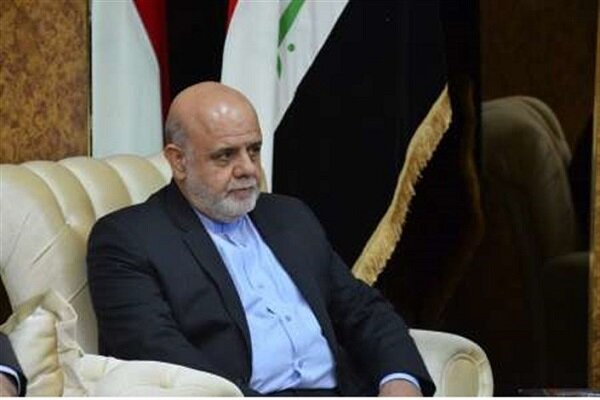In an interview with Al-Monitor on Friday, Masjedi said, “Iran and Iraq, as two historic neighbors, have many things in common that have intertwined their destiny.”
“We are neighbors forever, so no country wants the welfare and prosperity of Iraqi people more than we do."
The ambassador said the nature of the relationship between Iran and Iraq is unchangeable. “No matter what government is in power in Iraq, the relations between the two countries are so intertwined in different areas that no government can ignore them."
He said the relationship between Iran and Iraq also involves a wide variety of economic, cultural and educational and even humanitarian aid. He said that Iran has been exporting electricity to Iraq for more than a decade and that Iran is working on building the largest Iraqi power plant in Rumaila in the southern province of Basra.
The ambassador also said that Iran is building Zawra Stadium in Baghdad as well and that Tehran has provided various forms of aid, including oxygen to Iraq during the coronavirus pandemic. He deplored the US sanctions on Iran saying, the obstacles have been preventing the latter from working with greater capacity in Iraq.
Regarding the presence of the foreign troops in Iraq, Masjedi stressed Iran does not intend to interfere in an internal matter of the neighboring country.
“Iraq is our friend and brother country, and its leaders recognize their national interests better than anyone.”
Masjedi reiterated how the Iraqi parliament voted in favor of a nonbinding resolution earlier this year to end the US troop presence in the country and said he hopes this gets implemented very soon.
He said, “Iran believes [the US presence has] only resulted in increased insecurity, a growth of terrorism and will lead to the creation of new colonial mechanisms."
“The presence of foreign forces, including the Americans, in Iraq exacerbates the climate of insecurity, the growth of terrorism and security challenges,” Masjedi said.
He said the US terrorist forces have turned Iraq into a battlefield with Iran, saying that the United States "openly and shamelessly assassinated our senior military commander [Major General Qassem Soleimani], who was the official guest of the Iraqi government."
"Should such an action go unanswered?” the ambassador questioned. “Do you expect the resistance forces in Iraq, whose commander Abu Mahdi al-Muhandis was martyred, to calm down?” he asked, in reference to the PMU leader who was killed in Jan. 3 drone strike alongside Major General Soleimani.
He reiterated, “Iranian support to the Iraqi government is unconditional, whether Iraq decides to allow the US troops to stay or expel them.”
MR/FNA13990608000353/PR

























Your Comment